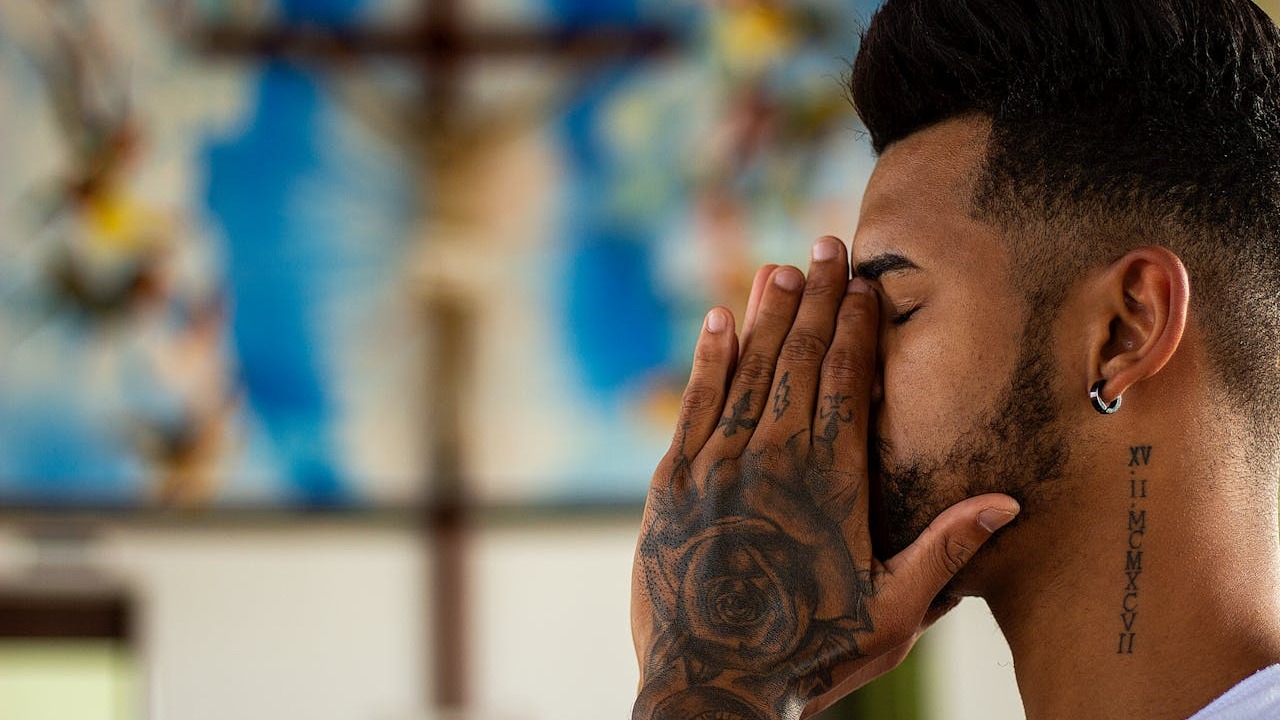Science
How Did Life Rebound on Earth? The Answer Lies Within the Rocks
23 February 2026

Is the world becoming less religious, or is secularism on the rise, with the ranks of atheists and agnostics only growing? Or could the opposite be true – given that Christian communities in Africa and the Americas are thriving and Islam is experiencing yet another revival? The influence of Hinduism and Buddhism is also on the rise. Many support both of these opposing conjectures. But could it be that these theses are not contradictory at all?
The history of religious beliefs is accompanied by an equally long history of the decline in faith in deities. Christianity displaced pagan polytheism, and the religion of Islam replaced the preceding planet cult. Hinduism took the place of the earlier Vedic religion. Typically, one set of beliefs was replaced by another. A breakthrough came with the Western European Enlightenment, which legitimized the stance of rejecting the existence of God, i.e., atheism. Despite significant influences, including within scientific circles, this view remained somewhat marginal, spreading among the masses only in the 20th century. But is this shift permanent?
Contemporary studies on religiosity show that nearly two-thirds of people believe in a god as described in sacred texts or in some form of higher power. Interestingly, the greatest discrepancies on this matter are found among the youngest generation. In some countries, they are the most religious group, while in others, conversely, they are the most secularized.
For instance, in Poland, the percentage of believers among Generation Z (born after 1995, just entering the job market) is over ten percentage points lower than in the older generation of so-called boomers (born after World War II, up to the mid-1950s). The situation is entirely different in countries with a low overall percentage of believers – such as Sweden or Germany – where the youngest respondents belong to the most believing group.
We recommend: Achieving immortality. Is religion still necessary in the 21st century?
At the same time, although a degree of religiosity remains similar regardless of age, among younger people, there has been a decrease in Christians (from 52% to 42%), an increase in Muslims (from 3% to 8%), those who do not specify a particular confession (from 11% to 15%), and the undecided (from 3% to 7%). As a result, the number of non-believers decreases with age. Among Generation Z, it is three percentage points lower than among boomers.
Detailed results of these studies, conducted in May 2023 by Ipsos, reveal many interesting patterns. For example, people are more inclined to believe in the existence of heaven than hell. These dogmas of faith are taken most seriously by residents of South America (Brazil, Colombia, Peru), Africa, and the Near East (Turkey). The most skeptical are residents of Western Europe (Belgians, French, Dutch, Swedes, Spaniards), as well as Far East Asia (Japanese).
What is the impact of religion on daily life? Belief in God or a higher power gives life meaning, allows people to be happier, and helps overcome problems, such as diseases or unforeseen accidents – thus believe about 75% of respondents. Brazilians, Colombians, South Africans, Turks, and Thais most often recognize the positive role of beliefs (about 90%). The most skeptical are Japanese, Hungarians, Swedes, and Belgians. These latter nations are generally considered more pessimistic than others.

Many conflicting opinions emerge in response to questions about the social impact of religion and its future. On one hand, 48% of respondents believe that religious people are happier than non-believers, and 37% – that they are better citizens (most in India, Thailand, and Brazil, least in Japan, Hungary, France, and Belgium). On the other hand, as many as 47% of those surveyed claim that religion does more harm than good (most British and Swedes, but also Indians; least Thais, Peruvians, and Argentinians).
To the question “Do religious practices significantly influence the morality of people in my country?” 54% of respondents answered positively, with this view particularly dominant in India, Thailand, and South Africa, but less popular in Japan, Sweden, and Hungary. The biggest differences among citizens of different countries appeared in the question of understanding for non-believers. “I stopped respecting those who turned out to be non-believers” – admits 73% of residents of India and 47% of Thailand, but only 6% of Hungarians or 10% of Japanese or Belgians. Poles are closer to the latter group – with a result of 15%, placing them closer to liberal societies.
It is noteworthy that among all surveyed respondents from 26 countries, Christianity was the most frequently professed religion (46%). The largest part of this group were Catholics (29%), followed by Protestants and Evangelicals (11%). Among the respondents, 7% declared themselves as Buddhists, and 6% as Muslims. Up to 29% of those surveyed did not adhere to any religion.
Research thus fails to provide a clear answer to the future of religion. Some experts highlight an accelerated trend of decline in its prevalence in recent years, not only in the wealthiest Western countries but also in somewhat poorer societies, including former communist states, Poland included. Yet, even these scholars note that in significantly less affluent societies, religiosity remains robust. After all, we are talking about exceptionally populous countries, such as India, Pakistan, or Indonesia. Therefore, on a global scale, the total number of believers does not decrease.
“Since 1981, through the World Value Survey, we have been collecting data now covering approximately 100 countries, inhabited by 90% of the Earth’s population. When we analyzed religiosity in 2007, it was on the rise in most states, especially in post-communist societies. This could be linked to the collapse of economic security after the fall of the system – faith filled a void left by communism. Marxism should also be considered a form of religion: it presupposes a clear division between good and evil and a simplistic explanation of the world. However, in recent years, out of 49 countries we have been observing from the start, only in five has the percentage of believers not decreased,” states Ronald F. Inglehart, Professor of Political Science at the University of Michigan in Ann Arbor, in an interview with Agnieszka Lichnerowicz for the daily Dziennik Gazeta Prawna newspaper.
His arguments are countered by French philosopher Rémi Brague, Professor at the Sorbonne in Paris and the Ludwig Maximilian University of Munich. “Western intellectuals made a mistake when they proudly declared that the era of religion had ended. They overlooked the rise in strength of evangelical Protestantism in Africa, Latin America, and even in Muslim countries, failing to perceive the awakening of Islam,” Brague asserts.
We recommend: Spirituality and well-being: a religious man in psychotherapy
Swiss Professor Jörg Stolz has attempted to systematize the phenomenon of changing religiosity worldwide. His first thesis posits that a high percentage of people believing in supernatural forces is linked to experiencing insecurity and poverty. Since Western societies are satiated and secure, the level of religiosity there is declining. Another hypothesis suggests that the decline in religiosity is related to the extension of education time. It is not necessarily the content taught in schools, which may not align with a religious worldview, but rather that students are spending more time in educational institutions. This factor significantly reduces the influence of parents and grandparents on upbringing, leading to a breakdown in the intergenerational transmission of religious values.
According to another theory, partly similar to the previous one, religiosity declines where parents lose influence over their children as they retreat into the virtual world, over which parents have no control. Additionally, family instability, including an increasing divorce rate, affects the crisis of faith. This thesis partially links religiosity to the existence of a family faith environment (including its communal celebration, such as participation in services of worship). Incidentally, what weakens so-called piety, such as virtual reality, simultaneously strengthens anti- and areligious communities. Scattered groups of atheists have been able to count and strengthen themselves through social media. Through the network, attitudes of declaring disbelief and apostasy, previously unmanifested and concealed, have been popularized.
Another hypothesis mentions so-called cultural goods, through which religions lose out to specialized secular institutions in providing services such as elder care, education, or offering community to those in need of psychological or financial support. Educated specialists perform the roles of caregivers and teachers much more effectively than priests and their assistants in temples. As a result, the latter – mainly churches – are becoming increasingly unnecessary.
The next theory raises the issue of pluralism as a factor hostile to religion. Practically, this means that in an era of globalization, when a person is constantly exposed to many religions and quasi-religions, none is convincing enough to be considered the one true faith. In this multitude of propositions, it is easy to lose one’s way.
The diminishing significance of religion may also be due to the deliberate policies of states, such as the Soviet Union and China, which sought to atheize their citizens. Legal regulations were developed to destroy faith in societies. On the other hand, legal interventions in countries without hostile intentions have also negatively impacted various denominations. For example, the introduction of religious education in Polish schools after the fall of the communist regime – over the years – has had the opposite effect to what was intended and has discouraged youth from Catholic practices.
A somewhat similar theory suggests that religion is harmed by entanglement in a strong political conflict – researchers cite the case of the United States, where evangelical churches, preaching a vibrant faith, sided with the Republican Party, while their rivals, the Democrats, are increasingly distancing themselves from religion. “A similar phenomenon, detrimental to religiosity, is observed in Poland. Here, the political bloc opposing the Law and Justice Party (PiS) is increasingly leaning left, whereas Christian values and religious faith are more strongly associated with the United Right,” assesses Professor Krzysztof Koseła, a sociologist from the University of Warsaw, commenting on the previously mentioned hypotheses. “Considering the multitude of explanations for the decline in religiosity, it is difficult to attribute the disappearance of religious practices to any single factor,” he adds.
Reza Aslan, an Iranian-American cultural scholar, presents a perspective advocating for the enduring presence or even the expansion of religious communities. Aslan, who has experienced a broad spectrum of faiths himself – raised in the Islamic tradition, converted to evangelical Christianity, returned to Shia Islam, engaged with Sufism, and recently identified as a pantheist – consistently promotes interfaith dialogue.
Contrary to the hopes harbored at the end of the 20th century, when American political scientist Francis Fukuyama heralded the “end of history” culminating in an era of liberal democracy, religious nationalism has, in fact, strengthened globally. This phenomenon can be attributed to two main factors: firstly, the collapse of secular nationalism, which had its moments of triumph in the 20th century, failed to foster a collective identity. This was partly because races, nations, and religions naturally intermingled, debunking the promise that eliminating markers of self-identification such as ethnicity and religion, and focusing instead on state affiliation, would make us feel like equal citizens under the law. This, it was believed, would ensure peace and prosperity and consign armed conflicts to the past. The two most devastating wars in history, fought in the name of secular nationalism, have buried this idea.
The second factor is globalization, which blurred the lines and divisions between nation-states. “Due to mass movement, travel and migration, trade dependencies, the creation of the European Union, the African Union, and international organizations that make interstate cooperation more fluid, people have begun to consider other, non-national ways of forming their identity. Hence, in many parts of the world, we are now looking for new ways of identification and more readily refer to more primal forms of collective identity, namely ethnicity and religion. The latter is the oldest form of human group identification,” explains Aslan. He cites the example of Israel, where 70 years ago, one could adhere to any religion (or none) and support secular Zionism, while today, to be considered Israeli, one must also be Jewish – a follower of Judaism. Similarly, in independent India, proclaimed as a republic with a Hindu majority but with numerous minorities under the umbrella of secular nationalism, the ruling government now insists that Indians must be Hindus, followers of Hinduism. The absurdity of this situation lies in the fact that the concept of a Hindu as such does not exist – it was a term coined by European newcomers, the British, to describe an infinite number of religious sects and groups. History has come full circle, and today, right-wing orthodoxies along the Ganges brandish a term that is, in essence, colonial.
We recommend: The Creeping Dawn of the Human Epoch
Reza Aslan’s extensive research has led him to a conclusion that elevates the status of religions. “Faith is an inalienable part of being human, an element of the human experience. It is an evolutionary impulse, a universal phenomenon; it exists among all peoples, in all parts of the world, dating back even earlier than the beginnings of our species. We know that expressions or experiences of faith occurred among Neanderthals and even earlier humans. Psychological and cognitive evidence indicates that we are born with an innate capacity for faith,” explains the American-Iranian scholar. However, why is this so? What benefits does faith bring to humans? Aslan admits his uncertainty on this matter. “We are certain, however, that the capacity for faith is fundamental and universal. We are born with this impulse and have limited choice in how to use it, that is, in choosing a religion. Of course, as my own example shows, individual experiences of faith and redefining what we understand as divine are possible. But this requires time, effort, and maturity,” Aslan remarks.
What does religion offer us? In the scholar’s view, there is still room for exploration. “The needs it addresses are not the reason for its existence. Religion can make people think more positively, more hopefully about the future, but that is not why it was created. Religion can also evoke fear of the future. I caution against hasty evolutionary explanations for the emergence of religion; what it serves does not explain why it appeared. The religious impulse may be incidental, an addition to other evolutionary traits,” Aslan elaborates.
He predicts that even if Christianity or Islam were to end soon, the concept of God – though it will survive – will bear no resemblance to today’s understanding. The division between the Creator and His creation will disappear, leaving behind a belief in pure existence, an energy of which we are a part. “Significant religious transformations have occurred before, and we are on the brink of another,” the researcher concludes, encouraging the search for God beyond religious institutions.
Thus, it seems that with the theses on the decline of religion, it is as with the proverbial reports of Mark Twain’s death. When American newspapers mistakenly reported in 1897 that the writer had died in London, Twain, known for his sense of humor, wryly noted with British stoicism, “Reports of my death are greatly exaggerated.” Following this incident, the writer lived in good health for several more years. Religions, most likely, will endure much longer.
Translation: Klaudia Tarasiewicz

Science
22 February 2026

Humanism
22 February 2026

Zmień tryb na ciemny